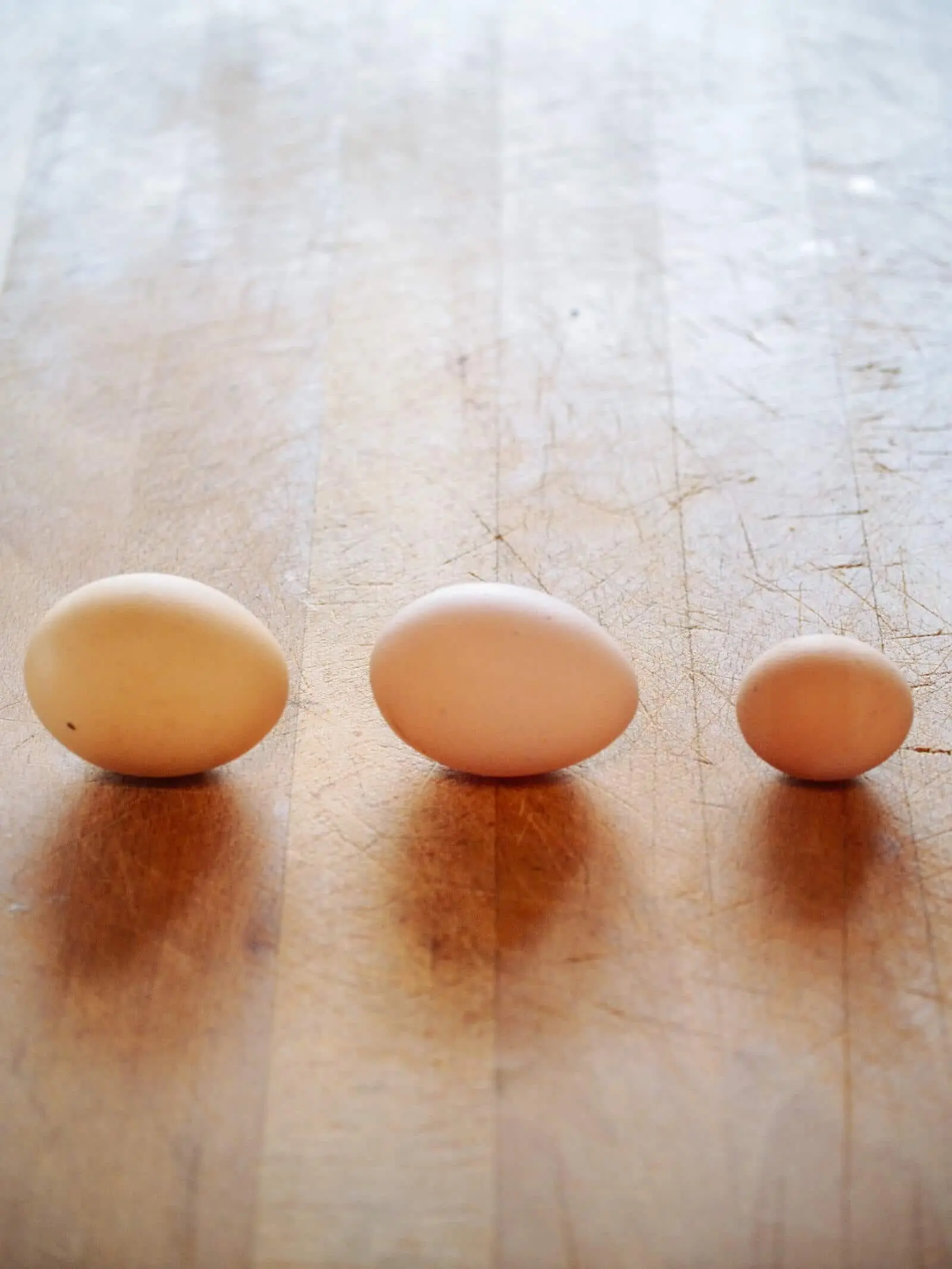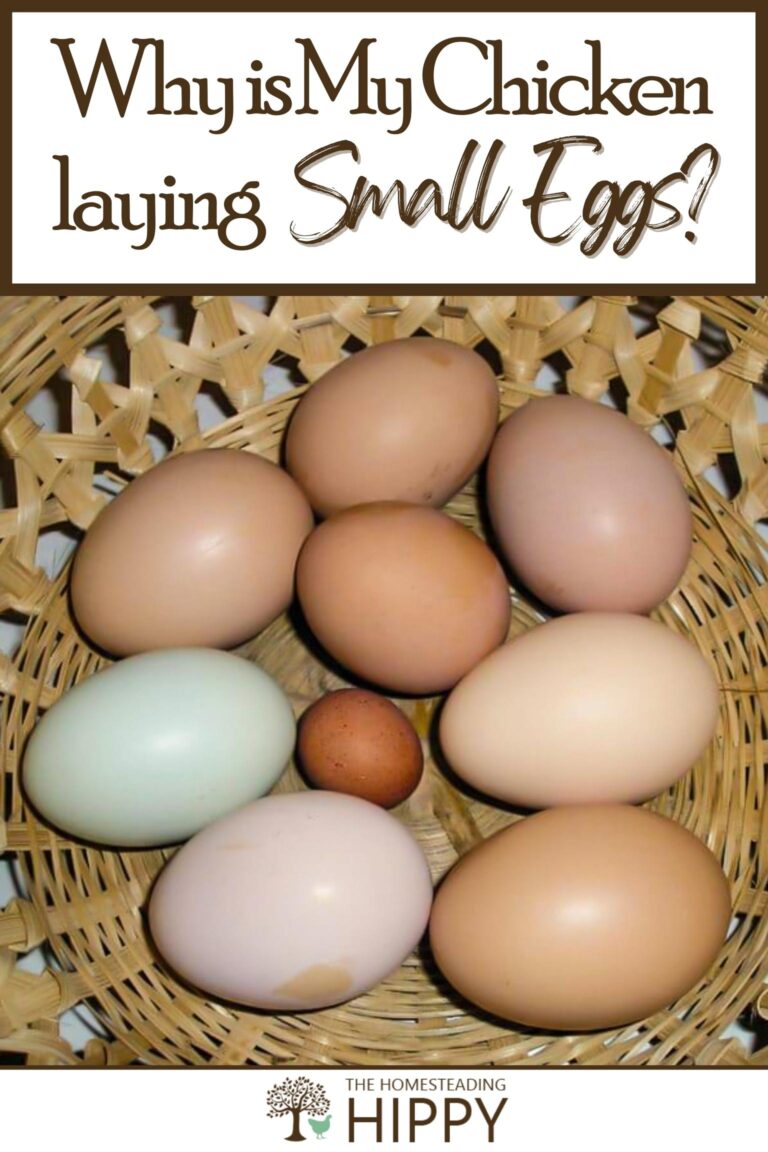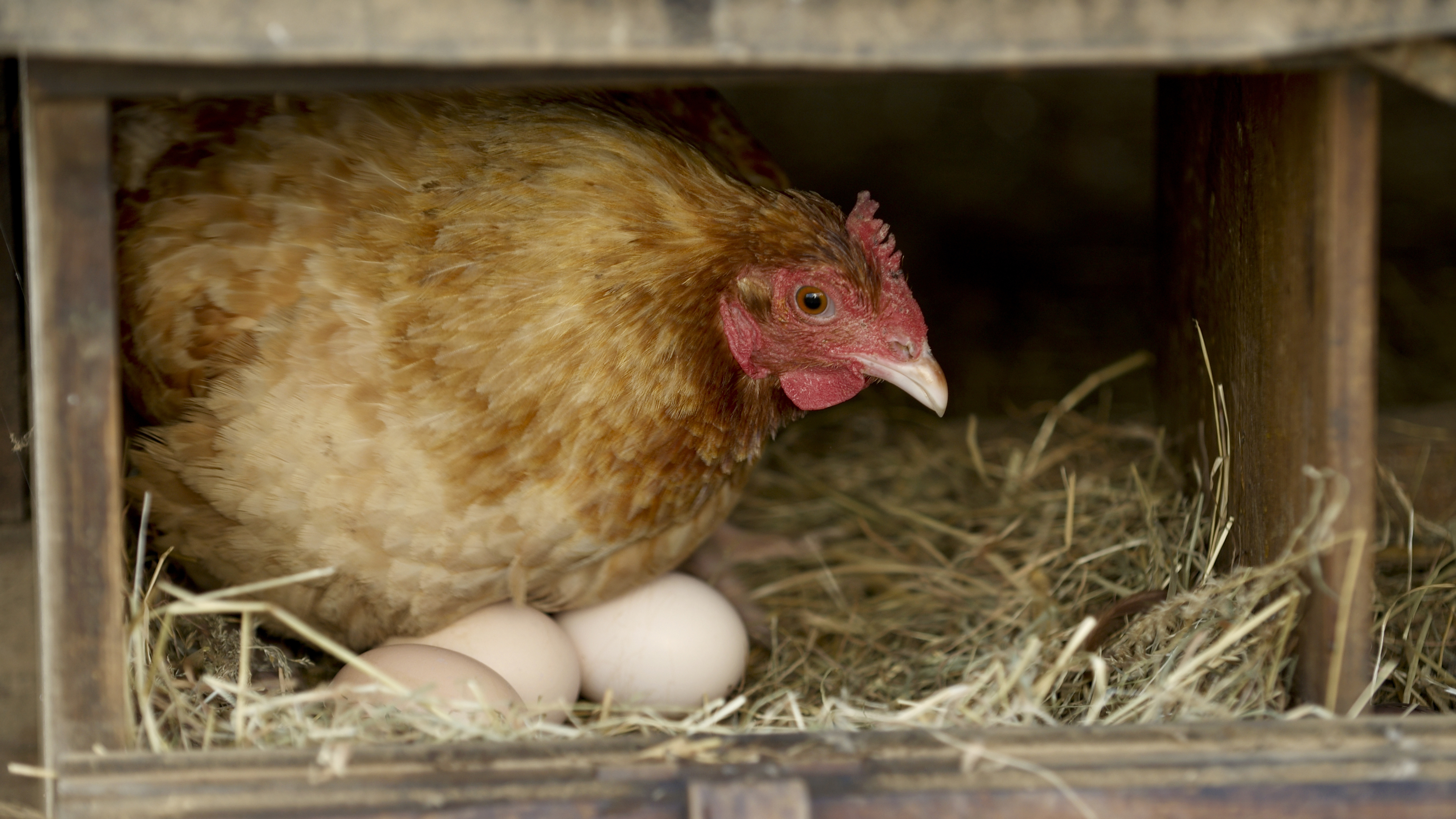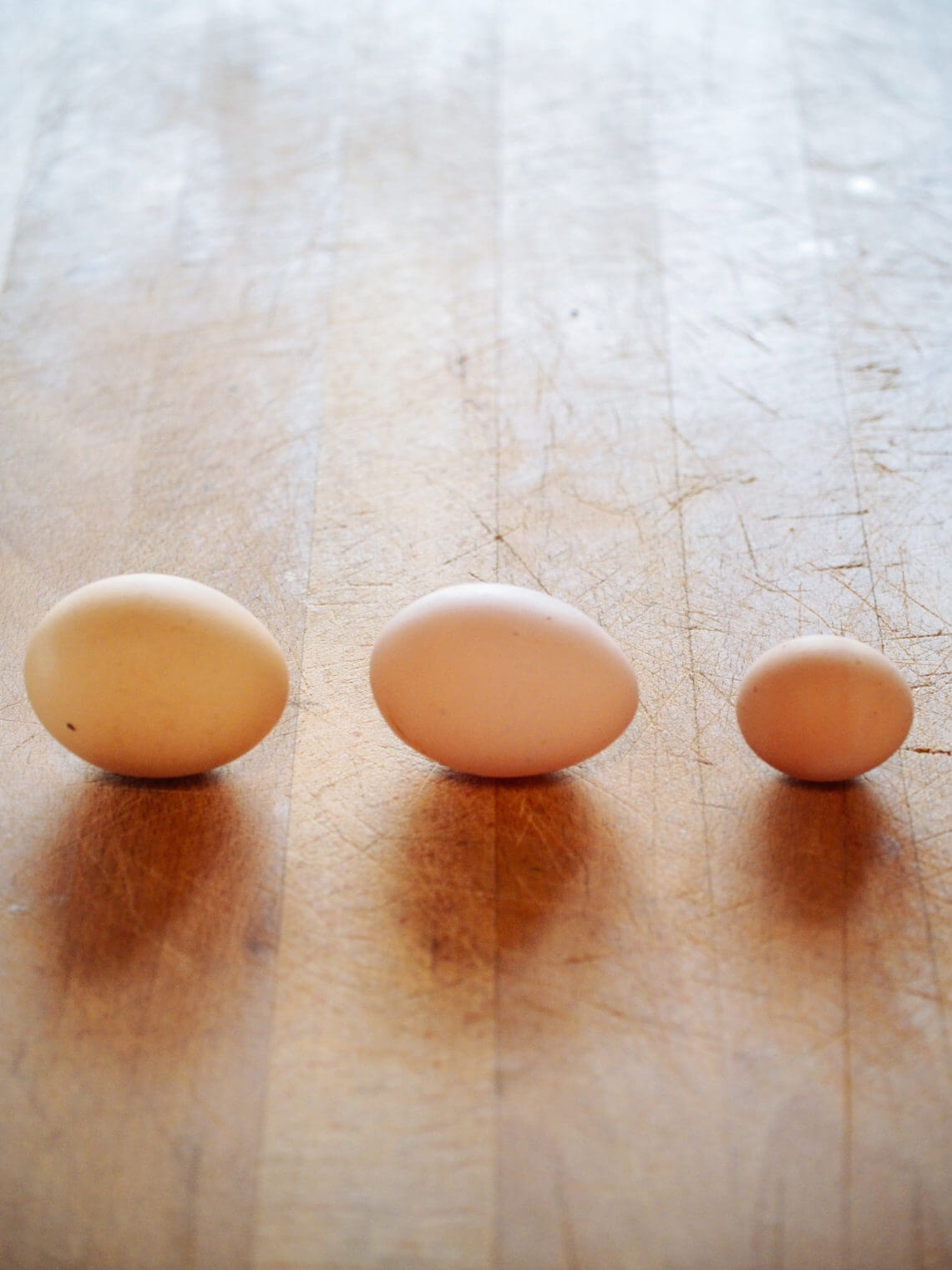Are you looking for a way to improve your chicken husbandry? Look no further than tiny chicken eggs! These tiny eggs are packed with nutrition and can help improve the health and productivity of your flock. They are rich in vitamins, minerals, and other essential nutrients that can help support a healthy and productive flock. Plus, they are a sustainable and cost-effective way to give your chickens the nutrition they need. Read on to learn more about how these tiny chicken eggs can help improve your chicken husbandry.
What Do Tiny Chicken Eggs Look Like?

Tiny chicken eggs are about a quarter of the size of a regular chicken egg and are usually light brown or white in color. They come in a variety of shapes, with some being spherical and others being more oval. The shells of small chicken eggs are often thinner than regular chicken eggs and may be slightly speckled.
The contents of tiny chicken eggs are much the same as regular chicken eggs, but they are significantly smaller. They generally have a yolk and a white, just like regular chicken eggs, but they are much smaller and contain less nutrition.
Here are some of the benefits of having small chicken eggs:
- Lower nutritional content. Small chicken eggs contain less nutrition than regular chicken eggs, making them easier for your chickens to digest and less likely to cause digestive problems.
- Lower cholesterol. Since small chicken eggs contain fewer calories and less fat, they are a healthier choice for chickens that are prone to high cholesterol.
- Easier to crack. Small chicken eggs are much easier to crack than regular chicken eggs, which makes them a great choice for younger chickens that may not be able to crack eggs with thicker shells.
Tiny chicken eggs are a great choice for those looking to improve their chicken husbandry. Not only do they provide a healthier option for chickens, but they can also help reduce waste and make it easier for chickens to consume their food.
Reasons Why Chickens Lay Tiny Eggs

Age
Chickens begin laying eggs at around 18 weeks of age, and the size of the eggs will gradually increase until they reach their full size at around 24 weeks of age. After this, the size of the eggs will gradually decrease as the chicken grows older.
Stress
Stress can also cause chickens to lay smaller eggs. When a chicken is under stress, it can cause them to produce fewer eggs, and the eggs they do produce will be smaller in size.
Nutrition
A lack of nutrition can also lead to chickens laying tiny eggs. If a chicken is not getting enough protein, vitamins, and minerals in its diet, it can cause the eggs to be smaller in size.
Breeding
Finally, the breed of chicken can also affect the size of the eggs. Some breeds are more prone to producing smaller eggs than others, so if you are looking for larger eggs, it is important to choose the right breed.
In conclusion, there are several reasons why chickens lay tiny eggs, including age, stress, nutrition, and breeding. If you are looking to improve the size of your chicken’s eggs, it is important to consider all of these factors.
Impact of Tiny Chicken Eggs on Chicken Husbandry

Health Benefits
Tiny chicken eggs can provide a range of health benefits for your chickens, including improved immunity, better digestion, and increased strength. The small size of the eggs means they are easier to digest and the nutrients are more easily absorbed by the chickens. The high levels of protein, vitamins, and minerals in the eggs can help to boost the chickens’ overall health and performance.
Cost Savings
Another benefit of utilizing tiny chicken eggs is that they can help to save you money. The small size of the eggs means that you don’t need to buy as much feed for your chickens. This can result in significant savings in feed costs over time. Additionally, the high nutritional content of the eggs means that the chickens will need less food to stay healthy, which can further reduce your feed expenses.
Quality of Eggs
The quality of the eggs produced by tiny chickens can be significantly higher than those from larger chickens. The small size of the eggs means that the yolks are more concentrated and the whites are thicker. This results in eggs with higher nutritional content, better taste, and a firmer texture. These eggs are also more resistant to spoilage and can last longer when stored properly.
Overall, tiny chicken eggs can be an excellent choice for improving your chicken husbandry. The health benefits, cost savings, and improved egg quality are all advantages that can make a big difference for your chickens and your pocketbook.
How to Increase the Size of Tiny Chicken Eggs
Having chickens in your backyard can be a great experience, but one of the most concerning issues that chicken owners face is why is my chicken laying tiny eggs. Small eggs are a sign of a nutritional deficiency in the chicken’s diet, or a result of a health issue. To solve this problem, here are some tips on how to increase the size of tiny chicken eggs:
1. Improve their Diet: Chickens need a balanced and nutrient-rich diet to lay bigger eggs. Provide them with a good quality feed that is rich in protein, minerals, and vitamins. You can also supplement their diet with fresh fruits and vegetables, mealworms, and other sources of protein.
2. Provide Adequate Calcium: Calcium is a key nutrient for egg shell production. Make sure to provide your chickens with calcium supplements or provide them with oyster shells, which are a great source of calcium.
3. Ensure Adequate Protein Intake: Protein is essential for healthy egg production, so make sure your chickens have access to high-quality protein sources like insect larvae, cooked eggs, and cooked meat.
4. Provide a Stress-Free Environment: Stress can cause chickens to produce smaller eggs, so make sure to provide them with a stress-free environment. Ensure that they have plenty of space, access to fresh air and sunlight, and a comfortable coop.
5. Monitor their Health: Regularly monitor your chickens’ health to make sure they are in good condition. If you notice any signs of illness, consult a veterinarian for proper diagnosis and treatment.
By following these tips, you can increase the size of your chicken’s eggs and improve your chicken husbandry.
Frequently Asked Questions
What are the Benefits of Using Tiny Chicken Eggs?
Reduced Feed Consumption: Tiny chicken eggs take less time to incubate and hatch, which means less feed is consumed during the incubation period.
Easier Egg Handling: Tiny chicken eggs are much easier to handle than large eggs because they are lighter and smaller. This makes them much easier to transport, store, and even sell.
Improved Egg Quality: Tiny chicken eggs are typically of higher quality than large eggs, as they are less likely to be damaged during the handling process.
Lower Production Costs: Smaller eggs require less feed, which can reduce the overall cost of egg production. Additionally, tiny chicken eggs can be sold at a lower price, which can help increase profits.
Greater Product Variety: Tiny chicken eggs can be used to create a variety of products, such as omelettes and scrambled eggs. This can help create a more interesting menu for restaurants and other food establishments.
How Does Using Tiny Chicken Eggs Improve Chicken Husbandry?
- Decrease Overcrowding: Tiny chicken eggs take up much less space than regular-sized eggs. This means that chicken farmers can keep more chickens in the same space, reducing overcrowding and increasing the overall health of the flock.
- Increase Nutritional Efficiency: Since they are smaller, tiny chicken eggs require less feed than regular-sized eggs. This can help to reduce feed costs, as well as ensuring that the chickens get all of the nutrients they need without having to eat more than necessary.
- Reduce Waste: Tiny chicken eggs are also more resistant to cracking, meaning that fewer eggs are wasted due to broken shells. This can help to reduce the amount of waste produced by the farm, reducing the environmental impact of the chickens.
- Improve Quality: Tiny chicken eggs are typically of a higher quality than regular-sized eggs. This means that farmers can sell their eggs for a higher price, increasing their profits.
Tiny chicken eggs can provide many benefits to chicken farmers, making it an increasingly popular choice for those looking to improve their chicken husbandry. By decreasing overcrowding, increasing nutritional efficiency, reducing waste, and improving the quality of eggs, tiny chicken eggs can be a great way to get the most out of your flock.
How do I go about getting Tiny Chicken Eggs?
- Choose a Breed – Tiny chicken eggs are produced by bantam or miniature breeds, such as Sebright or Serama.
- Find a Supplier – Once you have chosen the breed, you can search for suppliers. Sources include local hatcheries, online hatcheries, and auction sites.
- Check the Quality – Before buying, check the quality of the eggs. Make sure they are not cracked and that the shells are intact.
- Purchase the Eggs – After selecting the eggs, you can purchase them. You can buy them as a single egg or as a carton.
- Check the Shipping Policy – If you are buying from an online hatchery, make sure to check their shipping policy and the estimated delivery time.
Are There Any Potential Risks Associated With Using Tiny Chicken Eggs?
Using tiny chicken eggs can pose a risk to the health of the chickens due to a decrease in eggshell strength. A thinner eggshell can lead to shells that are more easily cracked, leading to bacterial infection and other health risks. Additionally, if the eggshells are too thin, they can be difficult to remove, resulting in eggs that are discarded rather than consumed.
How often should I use tiny chicken eggs to improve chicken husbandry?
Using tiny chicken eggs to improve chicken husbandry should be done on a regular basis. Tiny chicken eggs can help reduce stress, improve fertility, and increase hatchability. They should be used every few weeks to ensure optimal health and egg production. Additionally, using tiny chicken eggs can help chickens adjust to changing temperatures and ensure that their environment remains comfortable. Finally, introducing tiny chicken eggs into the diet can provide a more balanced and nutritious diet for chickens.
Conclusion
Tiny chicken eggs have numerous benefits for chicken husbandry. They are a cost-effective source of nutrition for your chickens, and they can also be used to help you breed chickens with desired traits. In addition, they can provide valuable nutrition to your chickens and can help improve the overall health and wellbeing of your flock.
